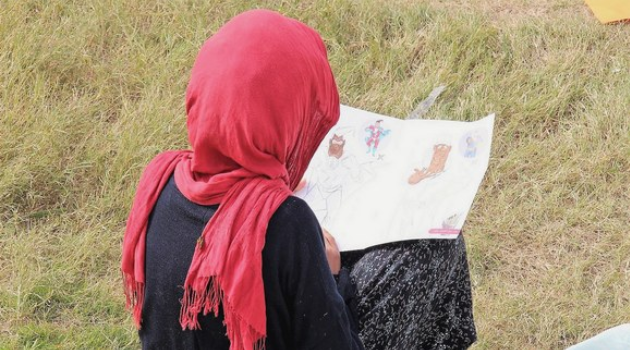The International Organization for Migration (IOM) has begun to roll out a psychosocial support programme for migrants at detention centres, with the launch of a one-day recreational event at Tripoli's Abu Salim detention centre.
"We do nothing but eat, drink and sleep, the only entertainment we have is talking to each other and that is very annoying, sometimes I wish I could die. However, today I feel alive again," explained Esse (not her real name), who is at the Abu Salim centre with her two siblings aged three and one, following a day in which, for the first time, recreational activities were offered to the migrants at the centre. "Please come again," the 20-year-old added after the sessions.
The one-day event on 21 January kick-started a wider IOM strategy, developed in coordination with the NGO Psychosocial Support Team (PSS), to provide support to women and children, who are particularly vulnerable. This support is being inaugurated in a number of detention centres, starting with the capital, Tripoli. There are an estimated 3,000 to 6,000 migrants at detention centres in Libya, who are all considered vulnerable.
Karolina Edsbacker, IOM Libya's Protection Officer, explained that these activities, "do not only offer the migrants a break from the misery they face inside the detention centres, they also serve as a measure to build trust between the PSS team and the children in particular."
"Providing psychosocial support for migrants inside detention centres is a pioneer project that has never been tried in Libya before," according to Khaled Hamidi, Executive Manager of IOM's implementing partner, the PSS team. "I'm very happy that we could try this out together with IOM," he added.
Forty-one women and 19 children participated in the full day of activities in Abu Salim, which included dancing and singing, sports, games and drawing. The participants also received clothes and Sahleb (a traditional Libyan drink).





